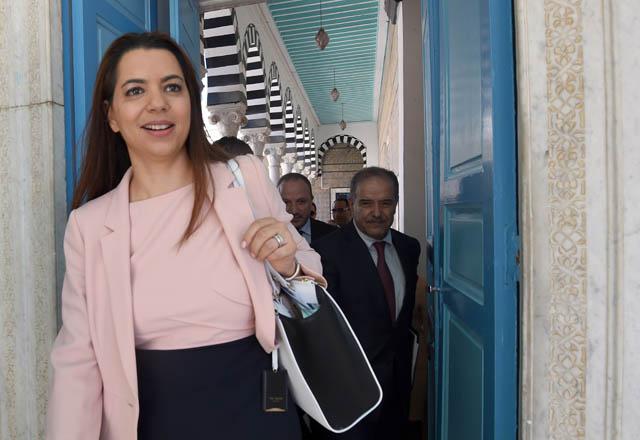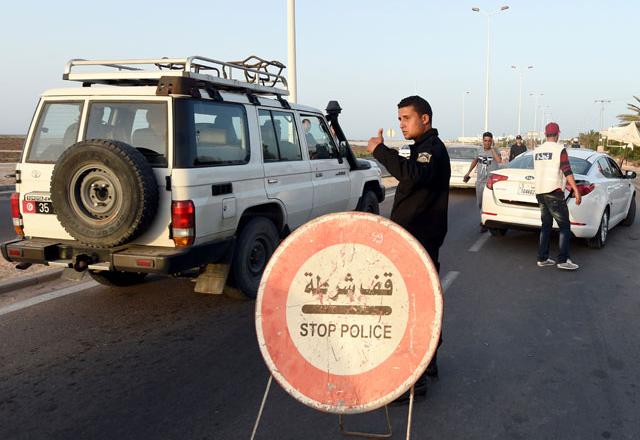You are here
Tunisia ministers escape censure over Israeli tourists’ visit
By AFP - May 10,2014 - Last updated at May 10,2014

TUNIS — Censure motions against two Tunisian ministers accused of promoting “normalisation” with Israel were withdrawn late Friday, just before deputies in the Islamist-dominated parliament were to vote on them.
The motions were filed last month against Tourism Minister Amel Karboul and Deputy Interior Minister for Security Ridha Sfar, with documents purporting to show that the latter gave written authorisation for Israeli tourists to enter Tunisia earlier this year.
Karboul was also accused of receiving an Israeli delegation.
It is an open secret that Israelis have been visiting Tunisia for years on the quiet.
And the parliamentary debate came just a week ahead of an annual pilgrimage that draws Jews from around the world to Tunisia’s ancient Ghriba synagogue.
A vote had been expected in the evening but “the two motions of censure have been withdrawn”, assembly president Mustapha Ben Jaafar announced to the assembled deputies.
“It was not our intention to attack the ministers. We wished to say that the normalisation of ties with Israel is a red line,” explained centrist deputy Iyed Dahmani, an avid supporter of the motions just hours earlier.
Leftist deputy Faycel Jadlaoui said the decision not to vote on the motions was due to the responses of the two ministers and the fact that half of the 80 signatories to the motion had withdrawn their support.
However, the news came as a surprise to some deputies in the chamber and led to heated exchanges.
‘We do not deal
with Israel’
Karboul denied receiving an Israeli delegation. She also defended her comments supporting the entry of tourists regardless of nationality, to boost a key sector of the Tunisian economy that was battered by the turbulence that followed the 2011 revolution.
And Sfar defended himself against charges of promoting normalisation with Israel, saying he merely followed procedures that have been in force for years.
“The case is purely administrative... We do not deal with Israeli papers,” Sfar said, explaining that the tourists coming from Israel had been issued with Tunisian passes, because Tunis does not recognise Israeli passports.
Sfar justified his authorising of the Israelis’ entry by the need to respond to an “international campaign” accusing Tunisia of discrimination.
Prime Minister Mehdi Jomaa has tried to brush the matter aside, saying it is important the new tourism season is successful.
“Normalisation yes? Normalisation no? Let’s put these great affairs aside,” he said at the opening of an economic conference last month.
“Tourism professionals have advised that, for the tourist season to be a success, the Ghriba gathering must be a success.”
The debate came just weeks after Israeli tourists aboard an American cruise ship were denied entry.
In response, Miami-based Norwegian Cruise Line announced its ships would not return to Tunisia in a potentially severe blow to a struggling economy three years after the ouster of autocrat Zine El Abidine Ben Ali.
And earlier last week, Holland America Line announced that it was cancelling a port call by one of its ships on Saturday “due to ongoing issues regarding the requirements of visitor visas for some of our guests”.
While expressing disappointment that the itinerary had to be adjusted, the company said “we continue to work with local Tunisian authorities and expect that future planned calls will operate as scheduled”.
Like most other countries in the Arab world, the North African nation does not recognise Israel, primarily out of solidarity with Palestinian demands for a state of their own.
Many remember Israel’s deadly 1985 air strike on the headquarters of the Palestine Liberation Organisation, then hosted by Tunisia, in which 68 people were killed. That was followed three years later by the assassination of the PLO’s number two, Abu Jihad.
But Tunisia is one of the Arab world’s most liberal countries, and still has a small Jewish population of about 1,500.
More than half are on the southern resort island of Djerba, where the Ghriba synagogue, the focus of the three-day pilgrimage that begins next Friday, is located.
Related Articles
Hundreds of Jews were flocking to the Tunisian island of Djerba Wednesday for an annual pilgrimage to Africa's oldest synagogue with security tightened after the Bardo museum massacre and warnings of extremist attacks.
Tunisia said Sunday security measures have already been taken to protect Jewish pilgrims at a religious festival next week on the island of Djerba, after Israel warned of "concrete threats".
Israeli tourists aboard a cruise ship were prevented from entering Tunisia due to a surprise decision by the Tunisian government, the cruise operator said on Monday.
















